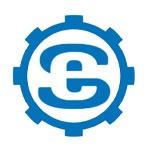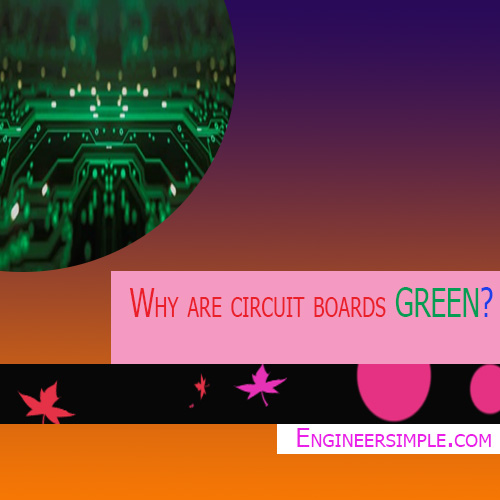What is a circuit bbc bitesize
BBC Bitesize - The ultimate circuit board
In today’s world, engineers and technicians need to be able to quickly and easily find information on circuit boards. That’s why there created BBC Bitesize – the ultimate circuit board reference.
There database covers over 1,000 different boards, so you can find the information you need quickly and easily.
They also have a wealth of video tutorials and articles to help you learn more about circuit boards and how to use BBC Bitesize.
So whether you’re a technician looking for a quick reference or an engineer looking to learn more about circuit boards, BBC Bitesize is the perfect resource for you.
Circuit
A circuit is a group of interconnected electronic components that forms the working part of an electrical device or machine. A circuit board is the surface of a PCB (printed circuit board) where electrical components are mounted and connected to one another. Circuit boards are often referred to as computer boards, but they are very different from computers. A circuit board is usually much thicker than a computer board, for example. This difference is due to the fact that a computer board has many more connections than a simple circuit board. Computer boards have channels and recesses which house all the pins used in the connection of individual components on the motherboard. Circuit boards need only to be flat and straight so they can be used in any object that requires standardized interconnections such as machines, smartphones and tablets etc.
What is a circuit board?
What is a circuit board platform?
As
the world of electronics continues to change, so too does the way circuits are
created and assembled. The circuit board platform, or PCB, has become a key
part of this evolution.
PCBs are essentially a platform for mounting
electronic components. They come in a variety of shapes and sizes, and can be
used in a wide variety of applications.
Some
of the most popular PCBs are used in electronics devices such as smartphones
and computers. These devices typically have a number of different components
mounted on the PCB, which need to be connected together.
PCBs are also used in other applications, such
as medical devices and home appliances. These applications require
How to solder a circuit board
Soldering
is a process of joining two pieces of metal by melting and then using a silver
solder to connect the two. The most common type of solder is lead-free, but
there are other types of solder available, depending on the project.
To
solder a circuit board, you will need a soldering iron, solder, flux, and a
circuit board. Solder the connections on the circuit board first, then do the
same on the iron. Be sure to use a flux core for better results.
How do they work
Circuitry
is the use of electronic devices and circuits to carry out specific tasks.
Electrical circuits are composed of two or more elements, called elements, and
these elements are connected together with wire or cable. When a current flows
through the wire, it creates a magnetic field. This magnetic field can be used
to control the flow of electricity.
Differences between a Circuit Board and
a Computer board - Which is better for your project?
Computer systems are made up of a circuit board and a
computer system board. A circuit board is a single large board that has
multiple circuit modules or "circuits" mounted on it. A computer
system board is a separate board that attaches to a circuit board.
The most important difference between a circuit board and a
computer system board is that a computer system board contains the actual
computer components, such as the CPU, memory, and storage devices.
A circuit board has a number of connectors that allow it to
attach to other boards or components. A computer system board has only a few
connectors, which are used to attach the circuit board to the computer
There
is no right answer when choosing between a command-line interface and a
graphical interface for your project. It depends on the specific needs of your
project and the types of users who will be using it.
Some
potential benefits of using a command-line interface include the ability to
customize and configure your project quickly and easily, and the ability to run
your project in a remote environment.
Some
potential benefits of using a graphical interface include the ease of use for
new users, the ability to share your project with others, and the potential for
more engaging and interactive projects
Tips for working with solderless
circuits
If
you’re new to working with solderless circuits, there are a few things you
should keep in mind. First, make sure you have the right tools for the job. Solderless
circuits use special components and connections, so you'll need a soldering
iron and solderless breadboard or circuit board.
Second,
be patient. solderless circuits can be tricky to assemble, and sometimes things
don't work right the first time you try them. Just keep trying, and you'll
eventually get the hang of it.
Finally,
remember that solderless circuits are very versatile. You can use them to
create all sorts of circuits, from simple
How to connect a circuit board
When
connecting a circuit board to a computer, the most important thing to remember
is to make sure that the connections are secure. There are a few different ways
to connect a circuit board to a computer, but the most common is to use a
cable.
To
connect a circuit board to a computer using a cable, you will need to find a
cable that is compatible with the circuit board and the computer. You will also
need to find a way to connect the cable to the circuit board and the computer.
You
can connect a circuit board to a computer using a cable by using one of the
following methods:
1.
Use a USB
Conclusion
If you look around, you’ll find that
circuits just like this are everywhere, powering all
of the things around you!
Cars, trucks, and buses all use a circuit with a battery to get started. And circuits run through your refrigerator, too, and in all of the other machines in your home that use electric power in order to work.
Inside devices like phones and
computers -- which you’re using right now -- there are very,




.png)

